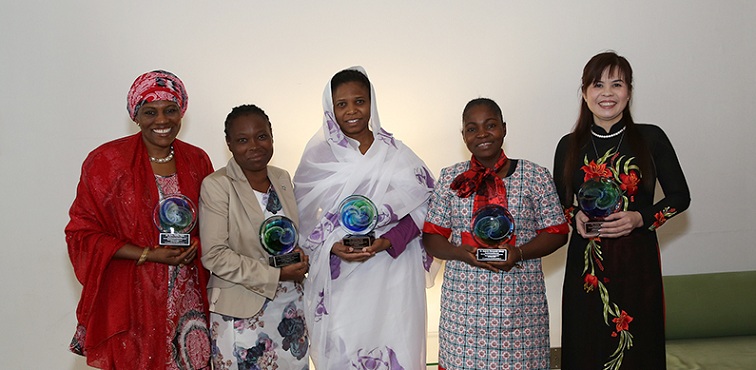Here are the winners of the Women in Science Elsevier Foundation Awards – meet them at #AAASmtg

Every February, the American Association for the Advancement of Science (AAAS) Annual meeting, the Elsevier Foundation and its key partners,the Organization for Women in Science for the Developing World (OWSD) and TWAS, the World Academy of Sciences, recognize the accomplishments of five early-career scientists with the Elsevier Foundation Awards for Women in Science in the Developing World.
The winners will receive their awards on Saturday, February 14,in a ceremony at the Minority and Women Scientists & Engineers Networking Breakfast. If you are interested in attending, contact Ylann Schemm.
This year, the prizes are for physics and math fields, where women have traditionally been underrepresented in Europe and the US, but even more so in low-resource countries. This year’s winning researchers – from Nigeria, Sudan and Vietnam – are being honored for their contributions to nanoparticle physics, computational mathematics and atmospheric and medical physics, as well as their efforts to encourage other young women to pursue careers in these critical fields.
The prize includes USD $5,000 and all-expenses paid attendance at the 2015 AAAS Annual Meeting. In addition, this year the Abdus Salam International Centre for Theoretical Physics (ICTP), based in Trieste, Italy, is offering each of the winners free attendance and accommodation at one of ICTP’s renowned workshops or conferences.
“This is an impressive list of great female role models,” said Dr. Charon Duermeijer, Publishing Director and Head of Elsevier Physics Journals, who has a PhD in geophysics. “I hope that many female students in physics and mathematics around the world will hear of these award winners and feel encouraged to continue their studies and further advance their careers. They too can become role models to encourage more women to study physics and mathematics, which is unfortunately still needed in the current academic climate.”
- Ylann Schemm, “Here are the winners of the Women in Science Elsevier Foundation Awards – meet them at #AAASmtg”, Elsevier Connect, Feb 2015

















